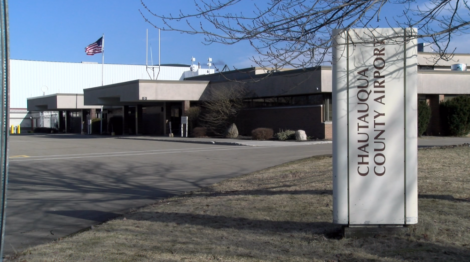Battery Recall Hits NFI Group Bottom Line
A battery recall is turning a third quarter profit for the owner of the New Flyer plant in Jamestown into a third quarter loss.
NFI Group Inc. announced its third quarter financial results on Friday morning. Third quarter revenue for the company was $879.9 million, an increase of 23.7% year-over-year, but the battery recall led to a gross loss of $114.3 million. NFI Group officials said the company would have reported a gross profit of $115.6 million, with gross margin of 13.1%, without the impact of the battery recall warranty provisions.
“The third quarter saw improvements in delivery performance with improved revenue and expanded margins per unit delivered as we converted our stronger backlog into results. These operational gains translated into significant growth in Adjusted EBITDA and Free Cash Flow reinforcing our continued focus on deleveraging and growing liquidity,” said Paul Soubry, NFI Group president and CEO. “These positives were partially offset by warranty charges related to a battery recall and associated support costs. We are in detailed discussions with the supplier who provides those systems and expect to reach an agreement on recall costs as we move through the fourth quarter.”
During the third quarter, NFI initiated a voluntary recall with the National Highway Traffic Safety Administration and Transport Canada. The recall impacted 700 battery-electric buses and coaches (primarily New Flyer buses) equipped with certain battery modules from a common supplier, XALT Energy LLC. After issuing the recall, NFI deployed operational guidelines and software to limit the state of charge and speed of charging for the continued safe operation of the affected buses and coaches.
NFI Group officials have since decided full battery replacement on the buses is required. NFI is finalizing its execution plan, with the replacement campaign expected to take 18 to 24 months to complete, starting in the first half of 2026. In the third quarter of 2025, NFI Group recorded a warranty provision of $229.9 million, reflecting the estimated costs for full battery replacement on all the vehicles impacted by the recall and estimated future costs associated with supporting vehicles in service that have other older XALT batteries. NFI has executed a tentative term sheet with XALT regarding the ongoing battery recall and is working towards a definitive agreement concerning the associated costs.
Amounts accrued for the Battery Recall are based on management’s best estimates of the amounts that will ultimately be required to replace the batteries. Updated cost figures are possible in the future.
On Oct. 28, XALT announced its decision to exit battery manufacturing, advising that it will wind down its U.S. battery operations. XALT’s wind down does not change NFI’s expectation to finalize an agreement that meets the company’s operational requirements and the needs of its customers.
NFI had previously taken proactive steps to move its primary battery supply for New Flyer battery-electric buses to a different supplier that has been providing battery systems to NFI since 2023. The new supplier is expected to provide batteries on new battery-electric buses in production and potentially the replacement of batteries on buses impacted by the recall.
Other news is solid for NFI Group. The company delivered 1,114 equivalent units in the third quarter, with 27.6% being battery- and fuel cell-electric buses. Adjusted EBITDA, a measure provides a view of a company’s core operational health, was $80.9 million in the third quarter of 2025, an increase of 52.1% year-over-year, while the company’s order backlog of $13.2 billion (5,774 firm orders and 9,832 potential orders) is a 7% increase year-over-year. Cash liquidity of $386 million is a 169% increase from the third quarter of 2024.
“Given our year-to-date performance we’ve narrowed our 2025 guidance ranges and remain confident in our ability to deliver strong revenue and margin growth in the fourth quarter. We expect this momentum will result in NFI recording it’s highest quarterly Adjusted EBITDA performance in Company history,” Soubry said.




